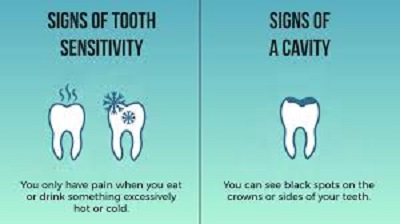Tooth decay has an impact on the overall health of a person. By analyzing the teeth, early treatments can prevent decays from getting worse. Hence it is essential to look out for signs and symptoms of decay with regular dental check-ups. Learn everything you need to know about dental cavity in this article.
Also Read : Dental Cavity – How to Know if You Have One?
What Is a Dental Cavity?
Tooth decay or dental cavity happens when the enamel erodes due to bacterial infection. A tooth becomes more susceptible to decay as certain foods or plagues react to the sensitive enamel. Eventually, when the enamel wears off, it becomes easier for bacteria to reach the inner dentin. Thereby, it causes a cavity.
Signs & Symptoms of Dental Cavities
You can spot a tooth cavity with a dental examination. In a few situations, a dental x-ray confirms the decay. Tooth decay mostly happens at the posterior teeth as it becomes challenging to clean them.
Signs and symptoms of tooth decay are:
Dark Spots
Discoloration or dark spots on the tooth surface is the first sign in identifying a cavity. Initially, they might seem like a stain, but they grow into large and dark spots over time. In rare cases, cavities also seem like white or light color marks on the tooth surface.

Sensitivity
As the cavity grows, the dentin exposes more. The nature of dentin is that it is porous, which increases tooth sensitivity. This aggravates the consumption of hot or cold foodstuffs. Over time it will also develop into pain on a specific tooth or area, clearly indicating a cavity.
Also Read : What Will Happen if You Don’t Treat a Tooth Decay?
Craters
The bacteria start to eat the tooth surface. This causes holes or craters on the enamel. Such pits will require a filling. The dentist will clean the hole and fix the tooth with an effective filling.
Bad Breath
Bacteria thriving in the cavity will produce waste. This causes an unpleasant taste in the mouth and bad breath. When the breath becomes impossible to mask, consult a dentist and get a check-up.
Pain
A cavity will cause discomfort and pain. You will experience sharp, shocking pain with every bite. The pain will make things worse and restrict regular activity. This is because the infection reaches the inner nerve of a tooth.
Final Words
Dental hygiene is the only way to keep your mouth and teeth healthy. Therefore, brush and floss twice every day. Rinse the mouth frequently to keep plaque and bacteria away. Most importantly, schedule dental examination and professional cleaning once every six months. Read More.Visit our posts on dental filling and toothache remedies for more information.
